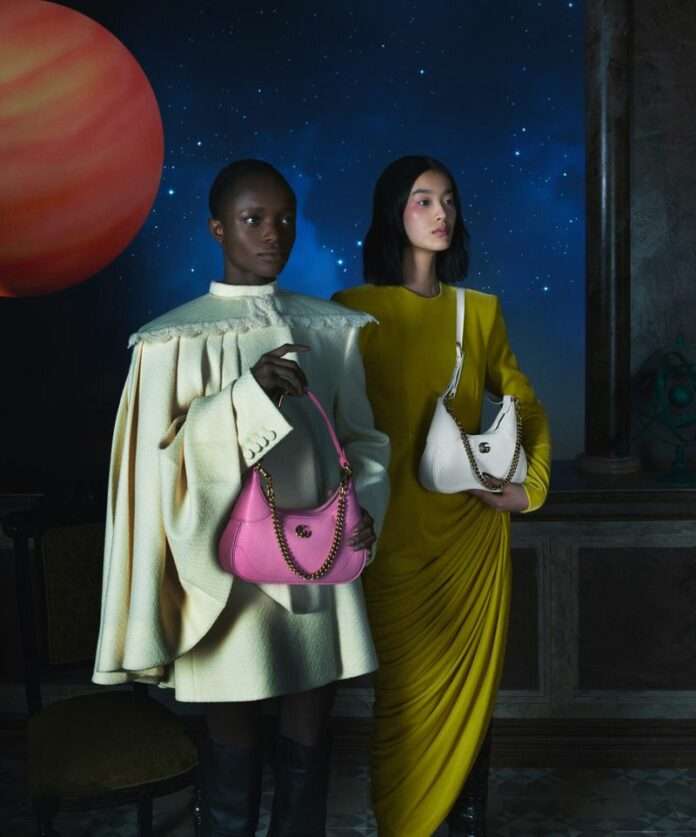Gucci and parent company Kering have announced the launch of an innovation platform called the Circular Hub, which aims to promote circular fashion in Italy and serve as a role model for sustainable fashion across the luxury industry.
The new hub is based in Tuscany and will involve Gucci’s production sites, raw material suppliers, and manufacturers, totaling more than 700 direct suppliers and 3,500 sub-suppliers, with an initial investment of €15 million spanning the first three years.
The ultimate goal is to have the entire luxury supply chain, including small and medium-sized enterprises, actively promote circular fashion.
“The recovery, recycling and reuse processes that will be integrated into Gucci’s supply chain in the initial phase, as well as the associated patents, techniques and know-how, will in fact be made available to other companies,” a Gucci spokesperson told Vogue Business. “The aim is to involve an increasing number of suppliers and industrial partners in an open innovation context that extends beyond the luxury and fashion supply chains, while working towards enhancing and valorising materials recovery, recycling and reuse.”
Closing the fashion loop
Circular fashion is an emerging concept that aims to create a closed-loop system in which clothing is recycled and reused rather than disposed of in landfills. The fashion industry is a significant contributor to environmental pollution and waste, with more than 92 million tonnes of textile waste generated each year, according to the Ellen MacArthur Foundation. Circular fashion is one way to reduce the industry’s impact on the environment and promote sustainable production and consumption.
Circular fashion is gaining momentum in the fashion industry, with a growing number of brands committing to sustainable practices. In 2017, the Global Fashion Agenda launched the Circular Fashion System Commitment, which aims to accelerate the transition to a circular fashion system. More than 90 brands, including H&M, Nike, and Stella McCartney, have signed on to the commitment. The Ellen MacArthur Foundation’s Make Fashion Circular initiative is also working toward a circular fashion industry. The initiative has identified three key principles for circular fashion: designing out waste and pollution, keeping products and materials in use, and regenerating natural systems.
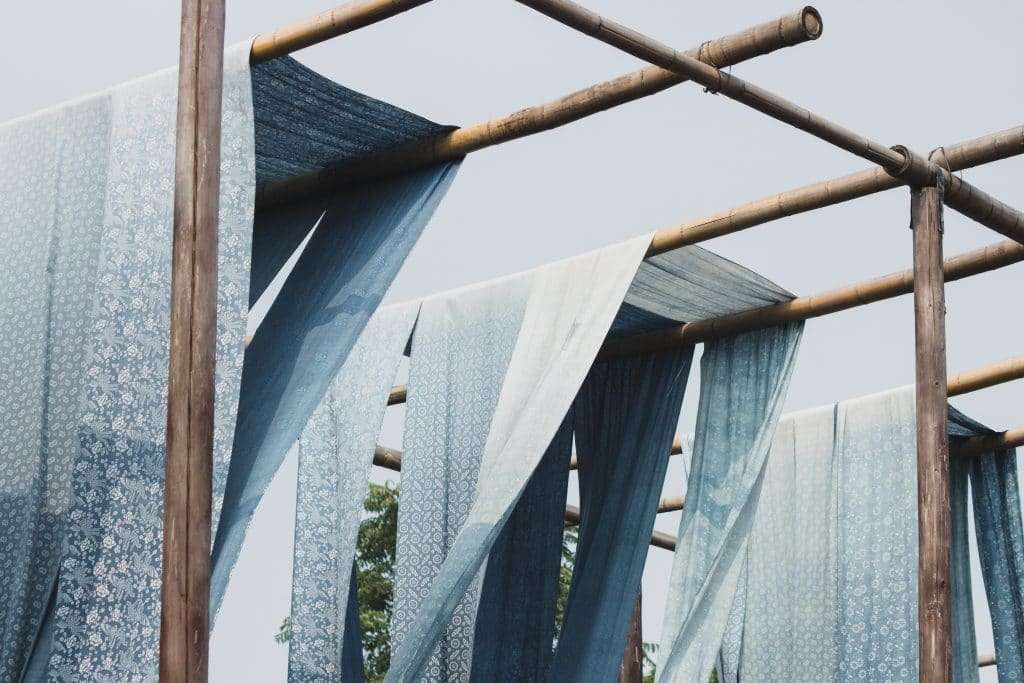
The fashion industry is responsible for ten percent of global carbon emissions, according to a report by the United Nations Environment Programme. The report also found that the fashion industry produces 92 million tonnes of textile waste each year, with less than one percent of the material being recycled into new clothing. The report highlights the urgent need for the fashion industry to transition to a circular model.
Circular fashion can also offer economic benefits, such as job creation and increased revenue. A report by the Ellen MacArthur Foundation and the Boston Consulting Group found that a circular fashion industry could generate $500 billion in economic value by 2030. The report also found that circular practices could create over one million new jobs in the fashion industry.
The Circular Hub
The new hub will draw on the expertise of Kering’s Material Innovation Lab (MIL), which was established in 2013 and is responsible for much of the research and supply chain coordination involved in developing new materials or launching sustainability-focused products across Kering’s brands.
The MIL has three main pillars: sustainable supply chain management, sustainable raw material management, and sustainable, responsible innovation. The lab’s work is often focused on making connections between priorities or across the supply chain. The MIL houses a library of materials it has created over the years, featuring over 5,000 samples of “certified sustainable materials” and an estimated 500 different manufacturers.
The Circular Hub will integrate the MIL’s research and expertise into the design of circular materials, including technologies for treating and transforming scrap materials into new raw materials and enhancing fiber-to-fiber chemical recycling. It will also leverage methodologies the MIL has developed.
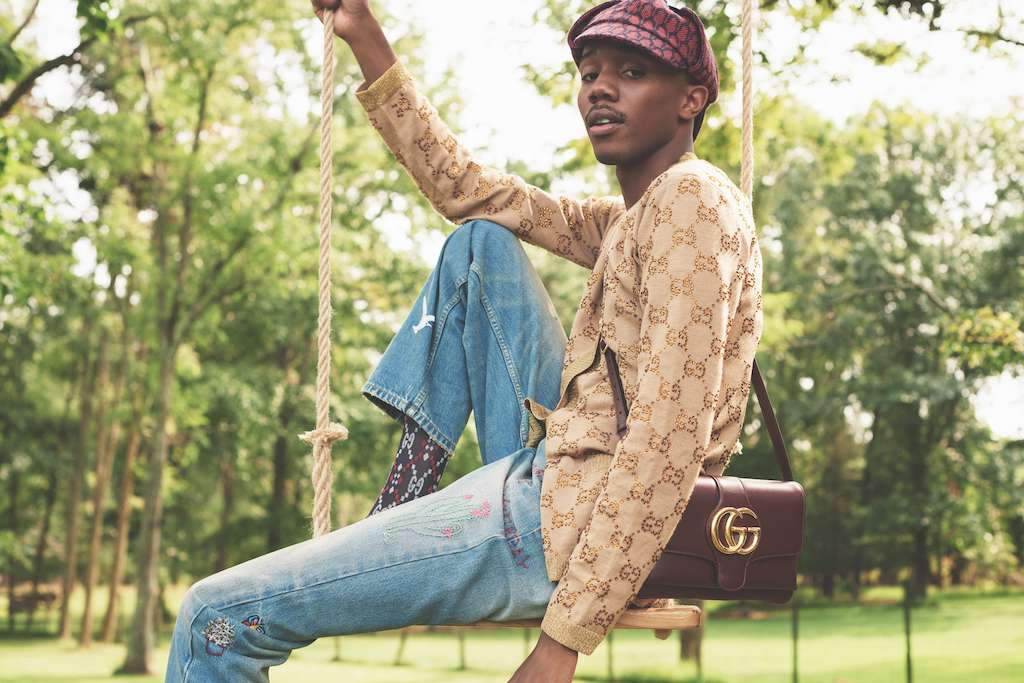
The launch of the Circular Hub will help Gucci and Kering to improve their environmental performance by promoting more efficient use of natural resources, reducing waste, pollution, and emissions. It could also offer a helpful blueprint for the industry, as European regulations demand that companies bear more responsibility for product design, end-of-life, and waste.
Antonella Centra, Executive Vice President, General Counsel, Corporate Affairs, and Sustainability at Gucci, said the hub will enable the entire luxury supply chain and especially the small and medium-sized enterprises “the beating heart of our country’s industry” to play an active role, “with the innovative spirit that makes Italian know-how unique in the world. With the launch of the Circular Hub, we will have the responsibility and above all the framework in place to create a pathway for the luxury industry of the future.”
The Circular Hub will be complementary to the activities of the Re.Crea consortium, a project founded by six Italian groups, including Prada, Dolce & Gabbana, and Ermenegildo Zegna, to help brands manage end-of-life challenges and advance recycling capabilities. The goal is to share research on circular materials and drive innovation of Italy’s industrial facilities, ultimately helping to develop new local supply channels and consolidate the supply chain.
Kering’s ongoing sustainability efforts
In 2018, Gucci announced its commitment to becoming carbon neutral across its entire supply chain by the end of 2020. This involved a range of initiatives, including switching to renewable energy sources, improving energy efficiency in its stores and offices, and investing in carbon offset projects. According to Gucci’s 2020 Environmental Profit and Loss report, the company reduced its greenhouse gas emissions by 21 percent from 2018 to 2019.
In an interview with Business of Fashion, Gucci President and CEO Marco Bizzarri spoke about the company’s sustainability goals. “Our commitment is to not only reduce our environmental impact, but to actually become a regenerative company,” he said. “This means going beyond the reduction of negative impact and actually creating a positive impact on the environment and society.”
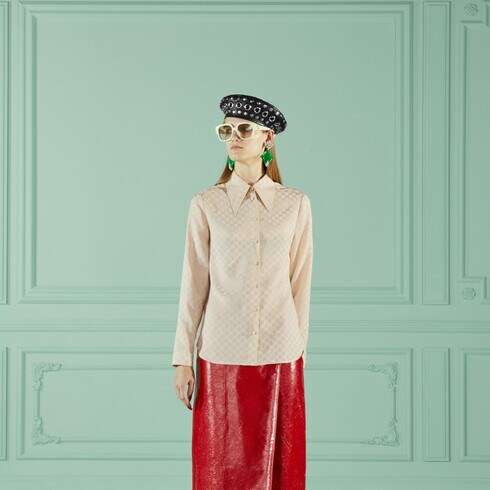
One way Gucci is working towards this goal is through its use of sustainable materials. In 2019, the brand introduced its “Gucci Equilibrium” initiative, which includes a commitment to using only sustainably sourced materials by 2022. This includes a focus on organic, recycled, and biodegradable materials, as well as sourcing leather from responsible suppliers. Gucci has also launched several collections made from sustainable materials, such as its Off The Grid collection, which features bags, accessories, and ready-to-wear made from recycled materials.
Gucci is also committed to reducing waste throughout its supply chain. In addition to using recycled and biodegradable materials, the brand has implemented initiatives to reduce waste in its stores and offices. This includes a focus on circularity and encouraging customers to repair and recycle their Gucci products. As Bizzarri told Forbes, “We want to create a closed loop where we can take products back from the customer and regenerate them into something new.”
In 2012, Kering launched its “Environmental Profit and Loss” (EP&L) tool, which measures the environmental impact of its operations and supply chain. The tool takes into account the company’s greenhouse gas emissions, water consumption, land use, and waste generation, among other factors. According to Kering’s 2020 EP&L report, the company reduced its environmental impact by 44 percent from 2015 to 2020.
In addition to reducing its environmental impact, Kering is also committed to promoting social and ethical sustainability. In 2013, the company launched its “Kering Foundation” to support programs that address violence against women. The foundation works with local organizations and NGOs to provide training, education, and other resources to women and girls around the world.
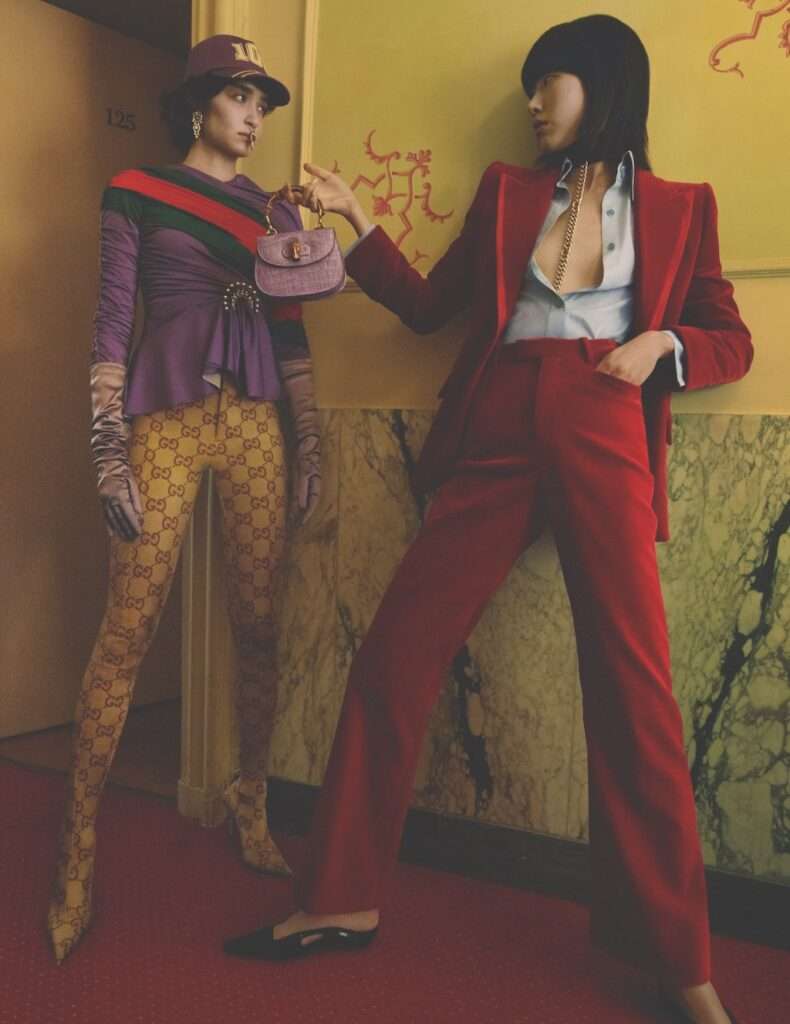
In an interview with Vogue, Kering CEO François-Henri Pinault spoke about the importance of sustainability in the fashion industry. “We have to be part of the solution, not part of the problem,” Pinault said. “We have to make sure that the resources that we use are renewable, and that the products that we make are recyclable or biodegradable. We have to make sure that our employees and the people who work for us are treated with respect.”
While Gucci and Kering have made significant progress toward their sustainability goals, there is still work to be done, Bizzarri told Business of Fashion. “We’re not perfect yet. We still have a lot of work to do. But we’re making progress every day, and that’s what matters.”
Related on Ethos:

